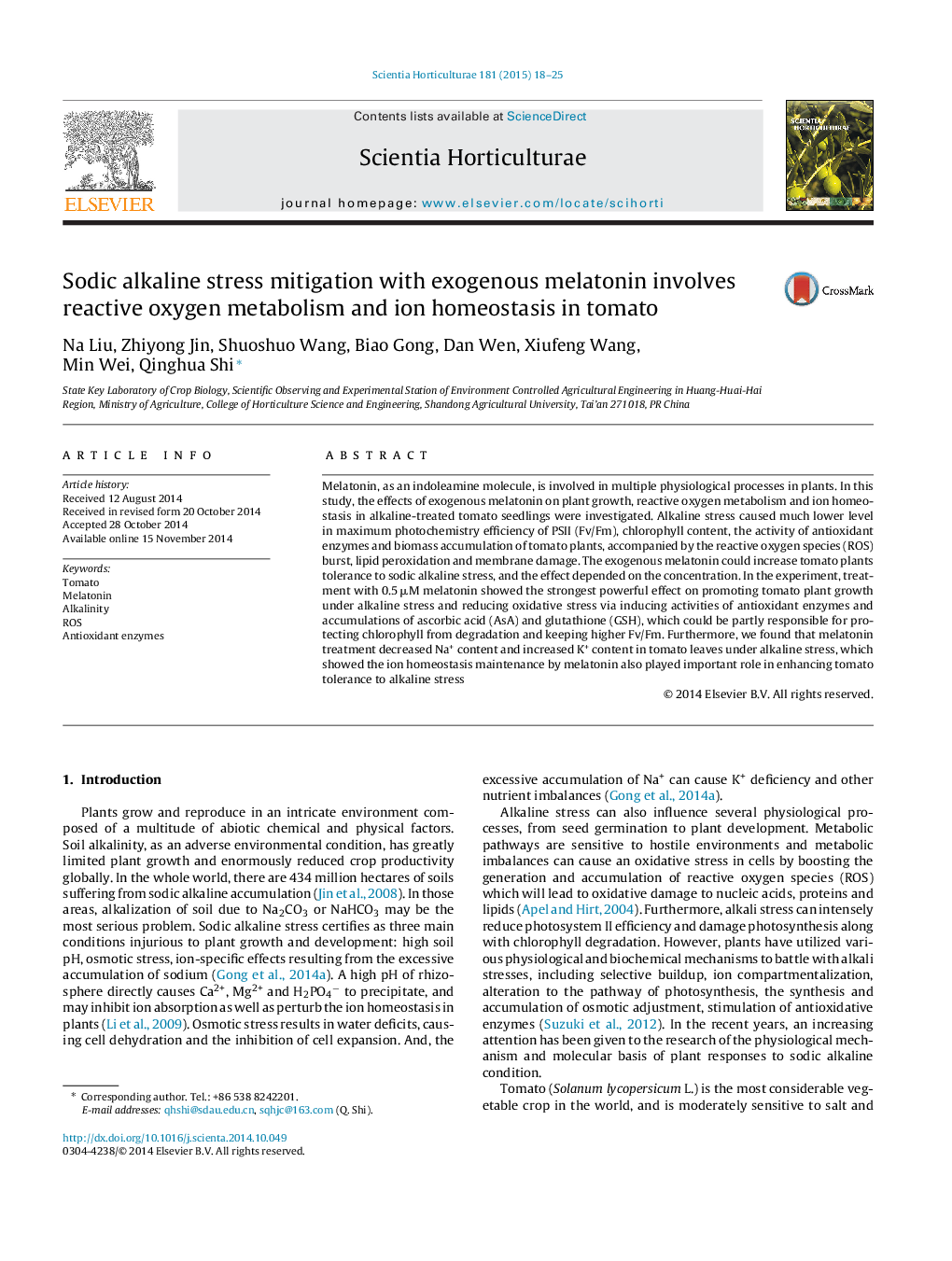| Article ID | Journal | Published Year | Pages | File Type |
|---|---|---|---|---|
| 6407069 | Scientia Horticulturae | 2015 | 8 Pages |
â¢Exogenous melatonin alleviated the inhibited growth of tomato by NaHCO3.â¢Exogenous melatonin decreased oxidative stress in tomato induced by NaHCO3.â¢Exogenous melatonin improved the AsA-GSH cycle of tomato under NaHCO3 stress.â¢Exogenous melatonin maintained the balance of Na+ and K+ in tomato leaves under NaHCO3 stress
Melatonin, as an indoleamine molecule, is involved in multiple physiological processes in plants. In this study, the effects of exogenous melatonin on plant growth, reactive oxygen metabolism and ion homeostasis in alkaline-treated tomato seedlings were investigated. Alkaline stress caused much lower level in maximum photochemistry efficiency of PSII (Fv/Fm), chlorophyll content, the activity of antioxidant enzymes and biomass accumulation of tomato plants, accompanied by the reactive oxygen species (ROS) burst, lipid peroxidation and membrane damage. The exogenous melatonin could increase tomato plants tolerance to sodic alkaline stress, and the effect depended on the concentration. In the experiment, treatment with 0.5 μM melatonin showed the strongest powerful effect on promoting tomato plant growth under alkaline stress and reducing oxidative stress via inducing activities of antioxidant enzymes and accumulations of ascorbic acid (AsA) and glutathione (GSH), which could be partly responsible for protecting chlorophyll from degradation and keeping higher Fv/Fm. Furthermore, we found that melatonin treatment decreased Na+ content and increased K+ content in tomato leaves under alkaline stress, which showed the ion homeostasis maintenance by melatonin also played important role in enhancing tomato tolerance to alkaline stress
